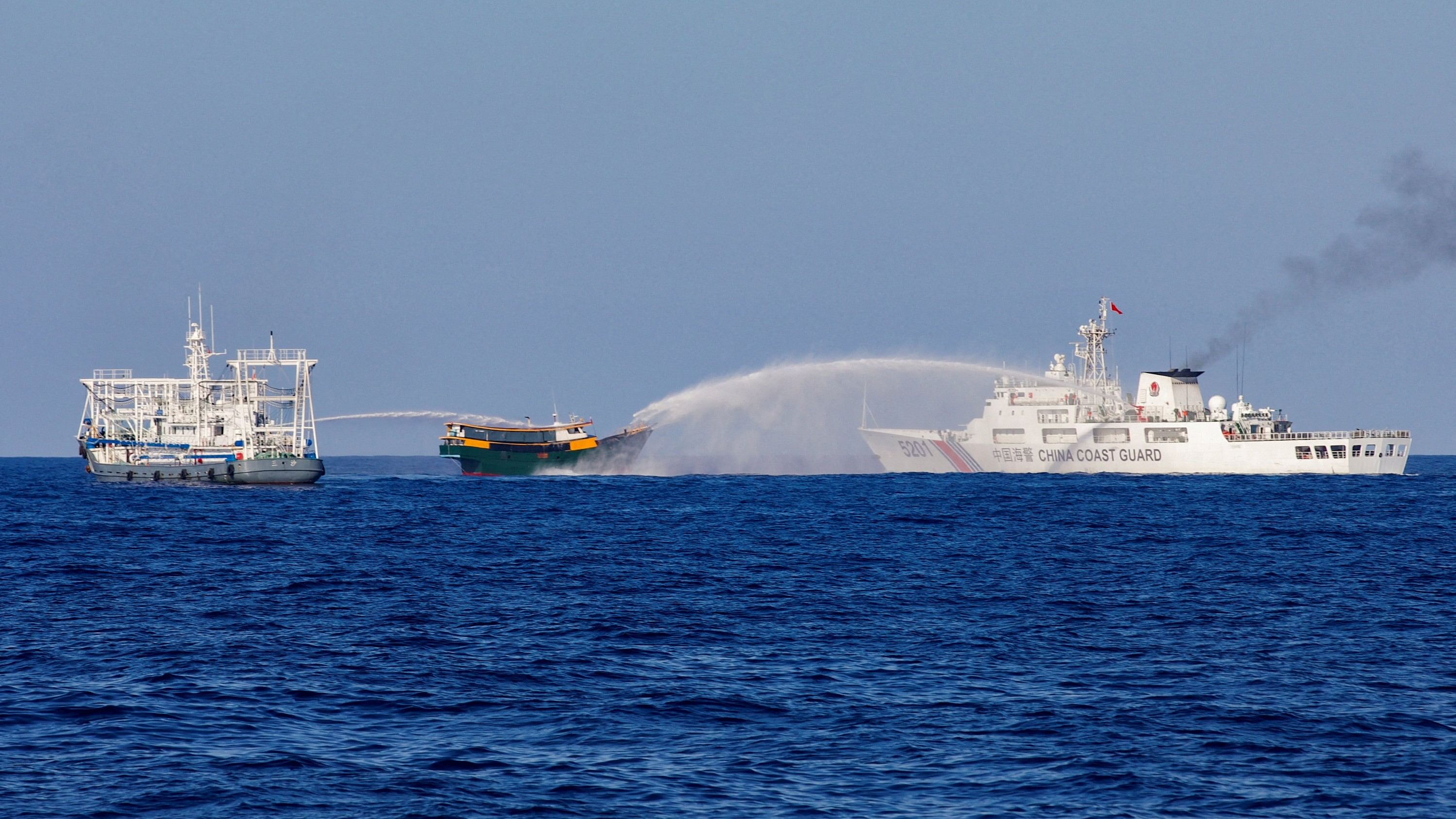
South China Sea.
Credit: Reuters Photo
By Karishma Vaswani
The clash between China and the Philippines in the South China Sea is on everybody’s lips in Manila. Prayers broadcast on the radio plead to a higher power for provocateurs to be kept out. Tensions are high, and the Southeast Asian archipelago needs to work with both Beijing and Washington to lower the temperature, but not capitulate to Chinese demands. Doing so would set a precedent for other claimants with stakes in the waterway that would be next to impossible to row back from.
The challenge for Manila now is to balance its economic interests with China without ceding its territorial rights. The latest incident in the contested waterway, on June 17, between Filipino sailors on a resupply mission to the BRP Sierra Madre, and the Chinese Coast Guard was among the more aggressive recently. It’s not as much that Beijing has won this round — the resupply mission was aborted — but that Manila bungled the fallout with various departments at odds about what actually happened. There appears to be a greater degree of unity now, and that is critical as the country attempts to manage the China threat.
The stakes aren’t just about the Philippines’ sovereignty. They are also about what lies under the waters: Huge reserves of oil, gas and fish. Security and trade in the Indo-Pacific is part of the US’s multi-pronged strategy of engaging with partners and allies, which is why it is pushing for freedom of navigation there. About 60 per cent of maritime trade passes through the Indo-Pacific. Maintaining an international presence is essential, or else the territory risks being controlled wholly by China.
That was the pitch that US Ambassador to the Philippines MaryKay Carlson made at the East-West Center International Media Conference in Manila this week. She called on China to cease its “bullying behavior,” and “harassment of the vessels operating lawfully in the Philippine Exclusive Economic Zone.” All countries should have sovereign rights to explore, utilize, conserve, and manage natural resources in their economic zones, and Beijing should end its interference, she said.
That’s obviously not how China sees it — it lays claim to almost all of the South China Sea, and earlier this month put in place new regulations that effectively allow it to treat any foreign vessels as trespassers in its waters. It takes courage to stand up to Beijing: It is now the number one trade and investment partner for many countries in the region, although foreign direct investment flows to the Philippines have fallen in recent years, according to Arsenio M. Balisacan, Secretary of the National Economic and Development Authority.
Manila doesn’t want to stop working with China, officials have told me during my visit, and there are already efforts underway to arrange a diplomatic meeting between the two sides. Any rapprochement would need to be carefully managed, so as not to rile up a domestic audience upset by what it views as a very public humiliation of Filipino forces.
Another proposal is for the Philippines to push ahead with a law of its own in the South China Sea that would allow it to affirm its jurisdiction under the auspices of the United Nations. The process for the bill to become law is quite far advanced by all accounts, and just needs to be signed by President Ferdinand Marcos Jr. In theory, it would allow the Philippines to closely monitor vessels entering its territorial seas and block those illegally entering, Jonathan Malaya, Assistant Director General of the National Security Council, told me. This would provide Manila with the legitimacy to defend itself against Beijing’s claims.
Additionally, more frequent joint naval exercises between the US and the Philippines would also help to deter China. There is one expected in the coming weeks, according to the Washington Post. The US should help Manila by regularly patrolling the waters, and enlisting the support of Japan, South Korea and Australia, which have significant forces in the region and similar strategic aims. If your neighborhood cop only comes out to police the surroundings every few months, one retired admiral told me, how safe will your home be?
These are all good measures. The key focus now is to ensure that Manila can assert its rights in the contested waterway, without being dragged into a dangerous conflict that would almost definitely involve the US and its allies. This round may have gone to China, but this will be a long and drawn-out fight. There’s still time to win the next one.